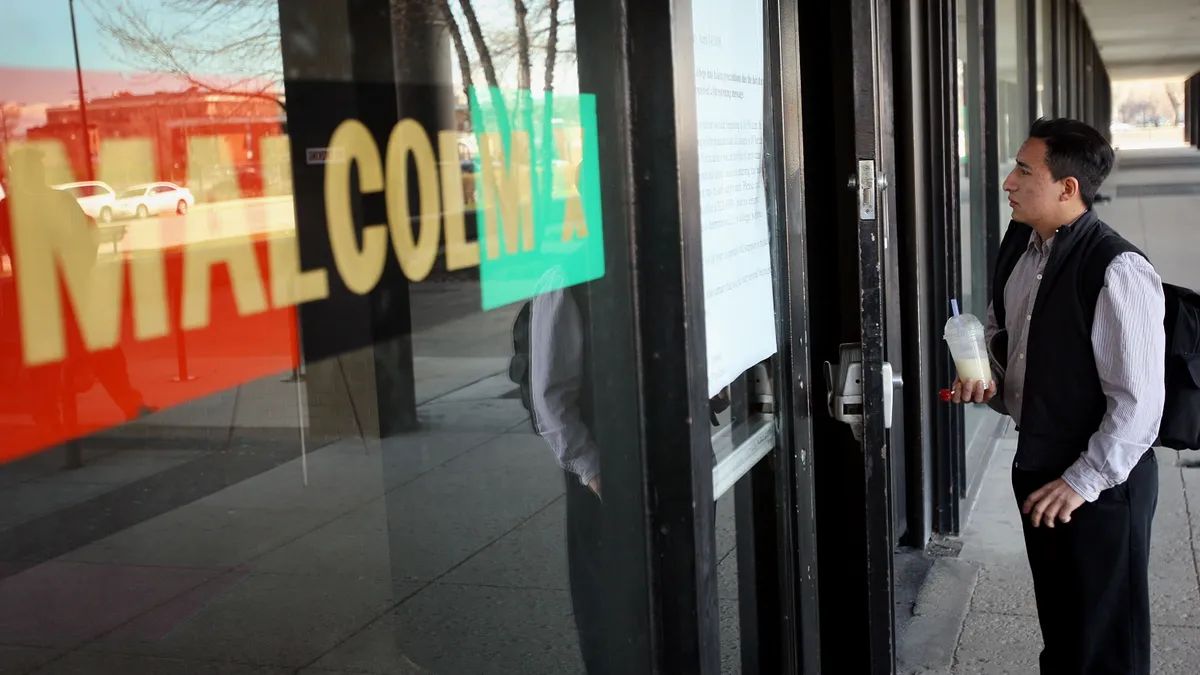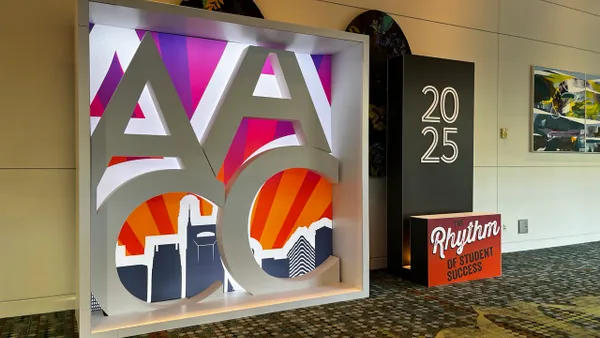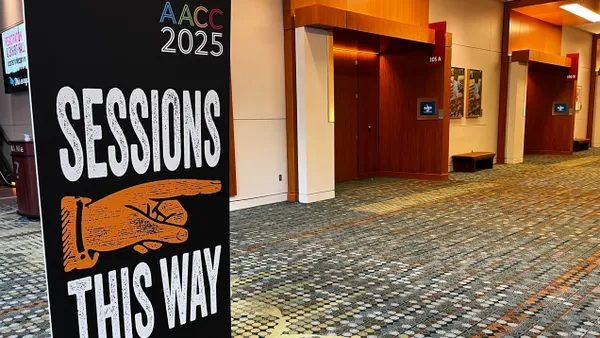Dive Brief:
- Most first-year degree-seeking students at City Colleges of Chicago will soon have access to an independently operated program providing wraparound support like mentorship and financial assistance in an effort to improve graduation rates.
- Currently, students must apply to the wraparound support program, operated by a nonprofit called One Million Degrees. But the City Colleges of Chicago and One Million Degrees are expanding their partnership so more students entering the seven-institution community college system will be automatically accepted into One Million Degrees, the organizations said Tuesday.
- The expansion starts at Olive-Harvey College by the end of this calendar year. It's expected to grow program participation at that college from 60 students today to between 225 and 250 students in year one. Officials plan to expand the program to more institutions and cover 3,000 students in the system annually by its fourth year.
Dive Insight:
Adding support for two-year college students is a top strategy for higher ed leaders seeking to increase completion rates. Programs like the City University of New York's Accelerated Study in Associate Programs, or ASAP, regularly receive attention for boosting graduation rates.
Research has indicated programs modeled after CUNY ASAP can be successful in other higher ed systems.
The One Million Degrees program is similar to CUNY ASAP because it provides students with services like mentorship, coaching, professional development and financial support. But it differs from CUNY ASAP, which is operated by the institution itself, in that it's run by an independent nonprofit.
Under One Million Degrees, students have a full-time program coordinator and can qualify for performance-based stipends of up to $1,000 per year. Program coordinators each work as case managers for about 65 students.
Growing to 3,000 students would mean scaling up significantly for One Million Degrees, a Chicago-based nonprofit founded in 2006 and previously known as the Illinois Education Foundation. The organization currently serves almost 900 students at 10 community colleges in the region. Those institutions include all seven City Colleges of Chicago.
Currently, students are recruited into the program. They must have a 2.0 GPA or higher and receive financial aid. Slots are first-come, first-served.
Under the expansion, automatically enrolled students will need to maintain at least nine credit hours to remain in the program until they transfer or graduate.
City Colleges of Chicago leaders hope the partnership can do more than simply grow how many students they graduate. They also intend to change underrepresentation of Black, Latinx and women workers in high-paying, fast-growing fields.
"We are growing the proven One Million Degrees model to tackle the equity gap in student outcomes head on and provide our students with the wraparound support to reach their goals," City Colleges of Chicago Chancellor Juan Salgado said in a statement.
The effort has raised almost $20 million in public and private funding. That includes $5 million from the community college system, $5 million from the Pritzker Foundation, and $1 million from One Million Degrees. Others making pledges include venture-philanthropy fund A Better Chicago, the Finnegan Family Foundation and JP Morgan Chase.
Leaders are searching for more funding to pay for the program's first four years. They're also seeking employer partners to mentor students and introduce them to career pathways.
The City Colleges of Chicago awarded about 4,000 associate degrees in 2021. The system seeks to hit a 55% completion rate by 2032.
But students at the City Colleges of Chicago have generally not earned degrees on time. For students entering in fall 2017, three-year graduation rates ranged between 21% at Harold Washington College and 32% at Richard J. Daley College. Transfer-out rates ranged from 10% to 16%.
Students who applied to the One Million Degrees program are 73% more likely to earn a degree within three years than those who didn’t apply, the organizations said.














